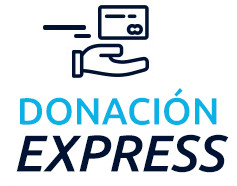Manos de Hermanos Foundation
An organization that safeguards the rights of the Wichi community in Formosa.
Current situation of the population:
In recent years, the Indigenous Peoples of Formosa have made their presence felt in society. They maintain their identity and certain economic, political, and social organization. They live in family communities, and the four indigenous groups living in the Formosa territory speak their own languages.
They deeply embrace a spirituality of communion, express themselves religiously, and are ecumenical. They have their own rules of conduct, codes, and laws. They hold great respect for elders as wise individuals, advisors, and custodians of values and ethics.
They love, care for, and rely on the land and forest in their territories for their sustenance (hunting, fishing, nutrition, remedies, agriculture, handicrafts, etc.). They have a history marked by prosperity, pain, and resistance.
At the same time, they endure discrimination and poverty; their territories are systematically violated, and the lands recognized as their own are insufficient.
Formosa is a province with an unfair distribution of land, where national laws such as 26.160 and 26.331 are not applied. The land-use planning law and the reform of the Civil Code were implemented without consultation or participation, resulting in serious violations of constitutional norms.
In this era of contact with modern culture, there is confusion. The groups that come closer to the city experience marginalization, and racism is prevalent. Many become victims of vices, prostitution, and human trafficking. To survive, they end up begging from neighbors and politicians. They lose their freedom in the mountains and live in a society that excludes them. Like all Formosans, they suffer from poor education quality and inadequate healthcare.
Cultural richness in danger
The province's indigenous policies create relationships of:
- Dependency, as the State is the only employer and provides subsidies, thus buying loyalty.
- Lack of respect for cultural diversity.
- Failure to promote productive and sustainable self-management.
- Disruption of community structures, leading to the loss of authority of leaders.
- Suppression of the self-determination of their communities, controlled by local politicians.
Education situation
There have been some advances in the field of education, and many indigenous children are attending school. However, the public education system remains monocultural and of low quality. Most indigenous children complete their formal education with a deficient primary education.
Regarding higher education, only a few Wichí individuals have had the opportunity to pursue it. This is where we are focusing our efforts.
There is a growing demand among young people to pursue university studies. The main obstacles to these aspirations are:
- Lack of necessary economic resources.
- The city not being their natural habitat.
- The prevailing racism in society that still views indigenous people as inferior to others.






Objective of the "Fundación Manos de Hermanos"
To support the Wichí students with personalized and group follow-ups, providing better spaces for study support.
Action Steps
- We have rented a house; it serves as the Community of Students' home. They have a space for meetings, recreation, and study.
- We have set up a room with 5 computers and a basic library.
- Three paid tutors provide personal and group follow-up for the students.
- We are developing projects focused on self-sustainability, such as work cooperatives.
Results
During these 14 years of project implementation, with the solidarity of individual donors, 21 young people have graduated.
- 19 of the graduated students are working in their communities as teachers or nurses.
- 1 is part of the technical team of the Provincial Ministry of Education.
Impact on the Wichí community
- We see that Wichí teachers have improved their support for students in the communities and are producing teaching materials (this year, a collection of stories and teachings was published, bilingual with color illustrations). Last year, the first two Wichí educational psychologists graduated.
- The inclusion of nurses allows patients to explain their symptoms and receive treatment instructions in their own language, enabling better understanding of their medical care. It also facilitates the incorporation of traditional knowledge, natural remedies from the mountains, and the way to care for the sick.
This year, we will support 50 students. Help us help them!
